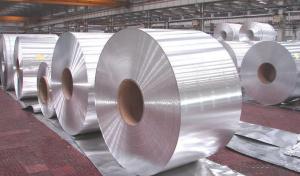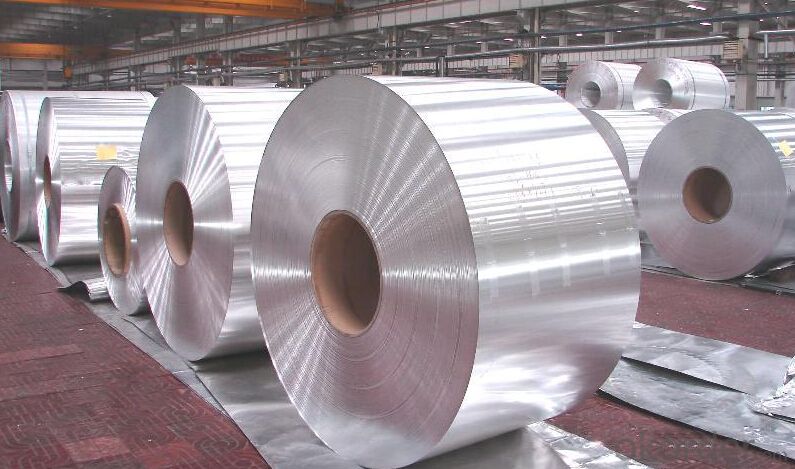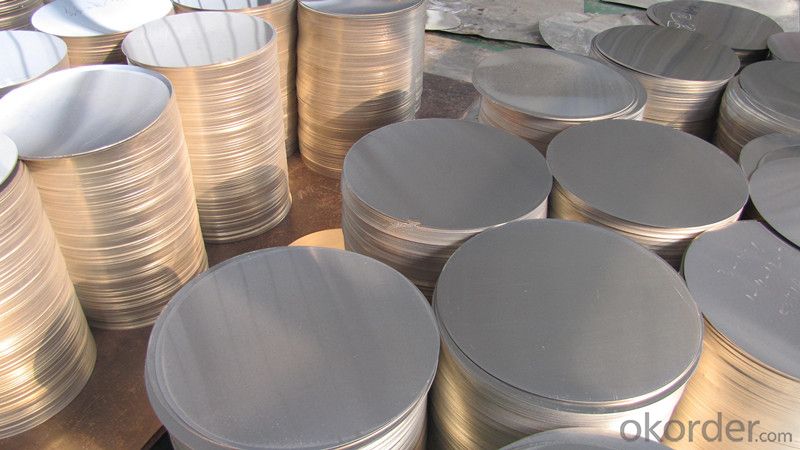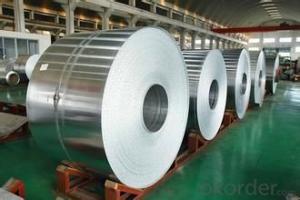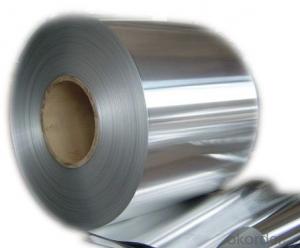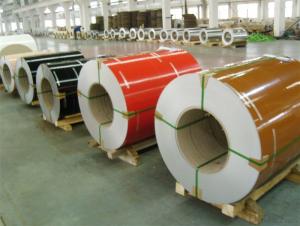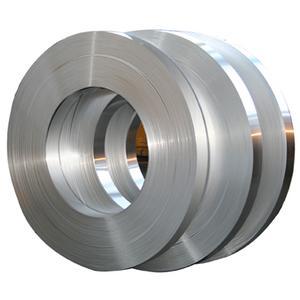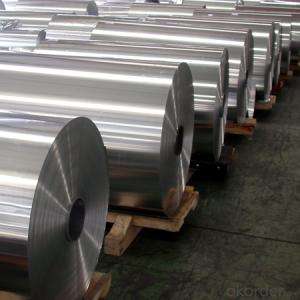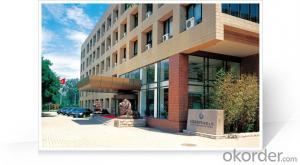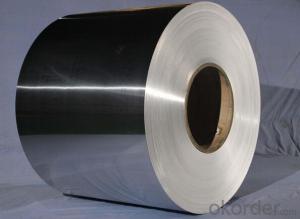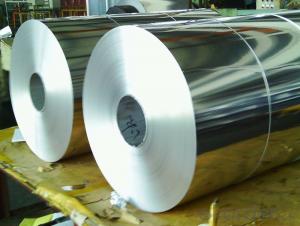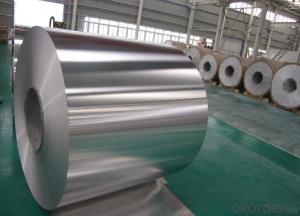1070 H22 Aluminum Rolled Sheet Aluminium Coil - Aluminum Coils Tampa FL
- Loading Port:
- Shanghai
- Payment Terms:
- TT OR LC
- Min Order Qty:
- 5 m.t.
- Supply Capability:
- 500 m.t./month
OKorder Service Pledge
OKorder Financial Service
You Might Also Like
Specification
1070 H32 Aluminum Rolled Sheet Aluminium Coil
aluminum coil specifications:
1) Alloy :1050, 1060,1100, 3003 3004 3105 3A21 5005 5052 etc
2) Temper: O/H12/H14/H1/H18/H32/H34/H36/H38//H111/H112/H116/H321/T6/T651/T3/T351 etc
3) Thickness: 0.1mm to 6mm
4) Width:20mm to 3300mm
5)Coil weight: 100kgs to 6 tons depends on actual requirement
6)Core material: Aluminum or paper
7)Coil Inner diameter: 75mm, 150mm, 200mm, 300mm, 405mm, 505mm or as required
8) Protective film can be added
item | 3003 Aluminum coil | |
Standard | GB/T3190-2008,GB/T3880-2006,ASTM B209,JIS H4000-2006,etc | |
Material | 1060,1050,1100 3003,3103,3004,3005,3105 5052, 5454,5754 | |
Size | Thickness | 0.5mm-3.5mm |
Width | 800-1500mm | |
Weight/Roll | About 1.5MT/3MT | |
Quality control | Mill Test Certificate is supplied with shipment, Third Part Inspection is acceptable. | |
Surface | Bright, polished, hair line, brush, checkered, embossed, etc | |
Trade terms | Price term | ,FOB, CNF, CIF, etc |
Payment Term | TT,L/C | |
MOQ | 2MT | |
20 GP Capacity | About 20-25MT | |
Delivery time | 1.The products will delivery immediately after receiving the payment. 2.According to the order quantity, prompt delivery. | |
Export to | Ireland,Singapore,Indonesia,Ukraine,Spain,Canada,USA,Brazil,Thailand,Korea,Iran,India,Egypt,Kuwait, Oman,Viet Nam, South Africa, Dubai, Russia, etc | |
Package | Stick blue film→plastic film→waterproof paper→1~2 tons on a export standard pallet(corner protection) | |
Application | 1)Further making utensil.2)Solar reflective film3)The appearance of the building4)Interior decorating:ceilings,walls,etc.5)Furniture cabinets6)Elevator decoraction7)Signs,nameplate,bags making.8)Decoration inside and outside the car9)Household appliances:refrigerators,microwave ovens,audio equipment,etc.10)The consumer electronics:mobile phones,digital cameras,MP3,etc. | |
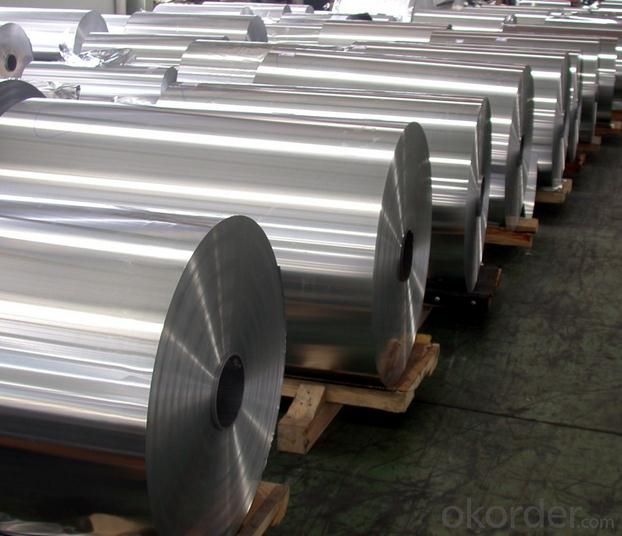
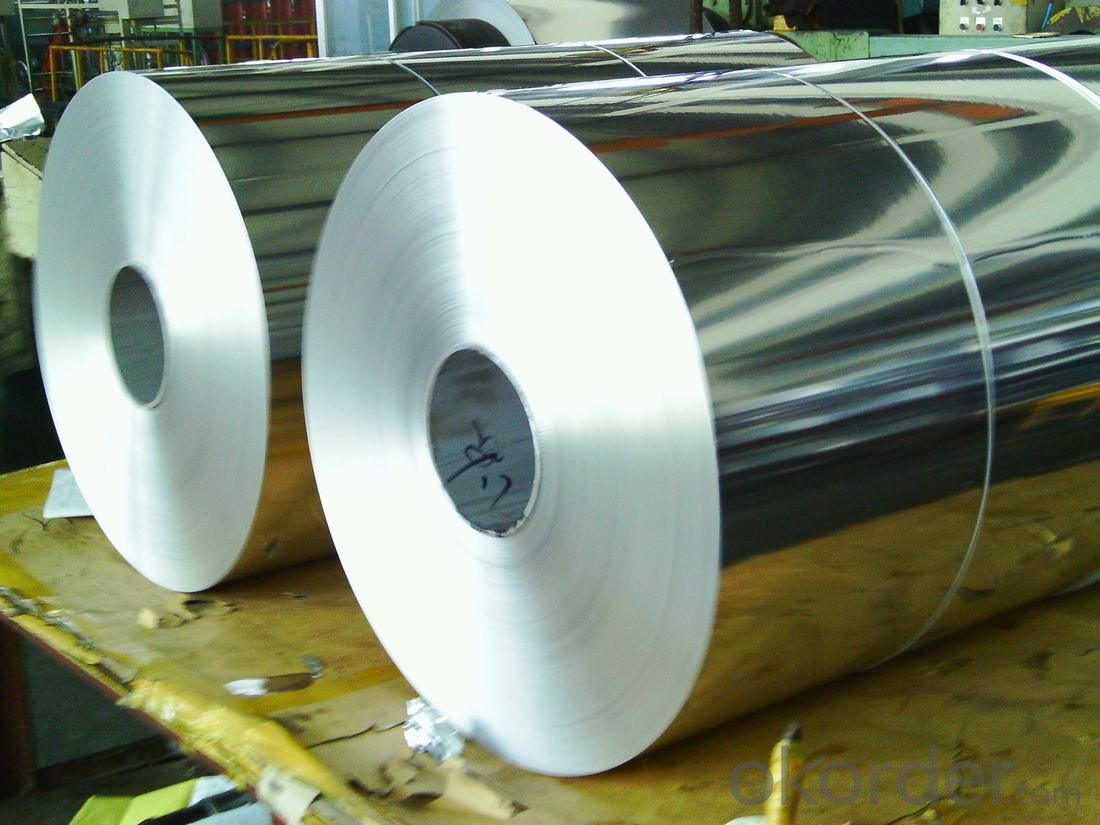
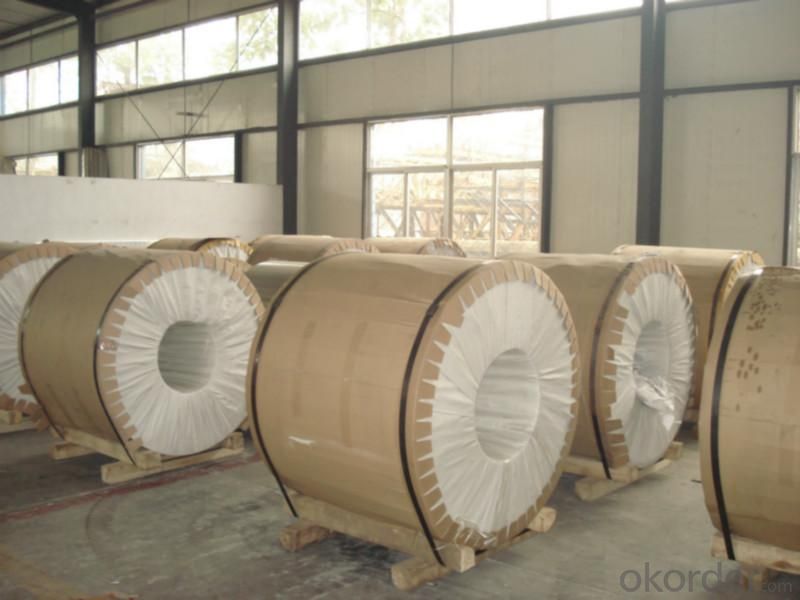
- Q: How to deal with too much aluminum powder in aluminum striping?
- Currently, there are bag dust-removal system and water dust-removal system. The former is very popular with enterprises because of low maintenance cost, accounting for over 90%. But the problem is the dust accumulation because the ventilation and dust removal systems are not produced in strict accordance with the standard. For example, controlling wind speed does not meet the requirement; ventilation and dust removal system does not meet the requirements of explosion-proof, including the set of pipes, series and parallel connection, the choice of dust removal system, the spark detection and extinguishing measures.
- Q: Is it possible to recycle aluminum coils?
- <p>Yes, aluminum coil can be recycled. Recycling aluminum is a highly efficient and environmentally friendly process. It requires only 5% of the energy needed to produce new aluminum from raw materials. Recycled aluminum coils can be used to manufacture new aluminum products, reducing waste and conserving resources. The recycling process typically involves melting the aluminum, which can then be reshaped into new coils or other forms. This makes aluminum one of the most recycled materials in the world.</p>
- Q: What are the energy efficiency benefits of aluminum coils?
- Aluminum coils provide numerous energy efficiency benefits that make them a preferred choice in various industries. Firstly, aluminum is an excellent conductor of heat, allowing for efficient transfer of thermal energy. This property is especially advantageous in the HVAC industry, where aluminum coils are commonly used in air conditioning and refrigeration systems. The high thermal conductivity of aluminum ensures that heat is effectively absorbed or released, resulting in faster cooling or heating processes and lower energy consumption. Additionally, aluminum coils possess exceptional corrosion resistance, which helps maintain their efficiency over time. Unlike other metals that may deteriorate due to exposure to moisture or chemicals, aluminum remains unaffected, ensuring optimal heat transfer efficiency throughout the lifespan of the coil. By preserving the coil's performance, energy losses due to reduced heat transfer are minimized, resulting in energy savings and increased system efficiency. Another significant advantage of aluminum coils is their lightweight nature. Compared to traditional copper coils, aluminum coils are significantly lighter, making them easier to handle during installation and maintenance. The reduced weight also translates into lower energy requirements for transportation, resulting in reduced carbon emissions associated with shipping. Furthermore, aluminum is a recyclable material, making it environmentally friendly and sustainable. The recycling process of aluminum requires significantly less energy compared to primary production, leading to reduced greenhouse gas emissions. By choosing aluminum coils, businesses can contribute to a more sustainable future by reducing their carbon footprint. Overall, the energy efficiency benefits of aluminum coils are vast. Their excellent thermal conductivity, corrosion resistance, lightweight nature, and recyclability make them an ideal choice for various applications, leading to reduced energy consumption, enhanced system performance, and a more sustainable environment.
- Q: How do aluminum coils contribute to lightweight vehicle design?
- Due to their unique properties and manufacturing processes, aluminum coils play a crucial role in the attainment of lightweight vehicle designs. Aluminum, being a lightweight material itself and weighing only about one-third of steel, is an ideal choice for lightweight vehicle design. When aluminum is formed into coils, it offers various advantages that contribute to the overall reduction in vehicle weight. First and foremost, aluminum coils possess high formability, enabling the creation of complex shapes using less material. This characteristic allows automakers to design intricate body panels and structural components that are both lightweight and possess improved aerodynamics and fuel efficiency. The ability to shape aluminum coils intricately also provides increased flexibility in design, leading to more innovative and visually appealing vehicle designs. Secondly, aluminum coils exhibit an exceptional strength-to-weight ratio, making them an excellent option for structural components. Despite their lightweight nature, aluminum coils provide exceptional structural integrity, ensuring the safety and durability of the vehicle. By incorporating aluminum coils into the chassis, suspension systems, and other critical components, automakers can reduce weight while maintaining the necessary strength and rigidity required for safe operation. Moreover, aluminum coils possess excellent corrosion resistance, which is vital for the long-term longevity of the vehicle. Corrosion can significantly impact the structural integrity and overall performance of a vehicle. By utilizing aluminum coils, automakers can minimize the risk of corrosion-related issues, resulting in a longer lifespan for the vehicle and reduced maintenance costs. Lastly, the utilization of aluminum coils aids in the overall reduction of vehicle weight, leading to improved fuel efficiency and decreased greenhouse gas emissions. Lighter vehicles require less energy for acceleration and to maintain speed, resulting in enhanced fuel economy. This benefit becomes increasingly significant as the automotive industry strives to develop more sustainable and eco-friendly vehicles. In conclusion, aluminum coils make a significant contribution to the design of lightweight vehicles by offering high formability, exceptional strength-to-weight ratio, corrosion resistance, and overall weight reduction. These properties enable automakers to design vehicles that are not only lighter but also safer, more fuel-efficient, and visually appealing. As the demand for lightweight vehicles continues to rise, aluminum coils play a vital role in achieving these design objectives.
- Q: What are the different sizes available for aluminum coils?
- Aluminum coils come in various sizes to accommodate the diverse needs of different industries and applications. The sizes of aluminum coils can vary depending on factors such as intended use, manufacturing process, and customer preferences. In general, aluminum coils can be found in a range of thicknesses, typically spanning from 0.2mm to 8mm. The width of aluminum coils can range from a few inches to over 60 inches. As for length, aluminum coils can be customized, but standard lengths usually fall between 1000mm and 6000mm. The specific sizes of aluminum coils available may also be influenced by the manufacturing capabilities of the supplier or manufacturer. Some suppliers may offer a wide selection of sizes to cater to different customer demands, while others may have a more limited range. It is important to note that the availability of specific sizes may be subject to minimum order quantities or lead times. Therefore, it is advisable to consult with the supplier or manufacturer to inquire about the available sizes and any associated limitations or requirements. Overall, the assortment of sizes for aluminum coils allows customers the flexibility to select dimensions that best suit their specific applications and requirements.
- Q: How are aluminum coils formed into different shapes and profiles?
- Metal forming is the process by which aluminum coils are transformed into various shapes and profiles. This involves applying force to the coil to alter its shape and contour. There are multiple techniques employed for shaping aluminum coils, including rolling, bending, extrusion, and stamping. The most commonly used method for shaping aluminum coils is rolling. This entails passing the coil through a series of rollers that gradually change its shape by applying pressure. The rolling process can be carried out either hot or cold, depending on the desired outcome. Hot rolling is typically used for thicker coils, while cold rolling is suitable for thinner ones. Bending is another technique employed to shape aluminum coils, particularly when creating curved or angled profiles. This can be done manually or with the assistance of specialized bending machines. By exerting force, the coil is bent to the desired shape, creating curves or angles as required. Bending is widely utilized in applications such as HVAC systems, automotive components, and construction. Extrusion is a process in which the aluminum coil is forced through a die to achieve a specific cross-sectional shape. The coil is heated and pushed through the die, which determines the final shape of the extrusion. This method is frequently employed to create intricate profiles with consistent dimensions, such as window frames, door frames, and structural components. Stamping is a technique utilized to produce precise shapes and patterns on the surface of aluminum coils. It involves pressing the coil against a die with the desired design, causing the metal to deform and adopt the shape of the die. Stamping is commonly employed for decorative purposes, such as creating patterns, logos, or text on aluminum sheets. In conclusion, various metal forming methods, namely rolling, bending, extrusion, and stamping, enable aluminum coils to be transformed into diverse shapes and profiles. These processes facilitate the customization and versatility of aluminum in numerous industries and applications.
- Q: What are the various categories of aluminum coils based on their characteristics and applications?
- <p>Aluminum coils are categorized based on their thickness, alloy composition, surface treatment, and temper. The main types include: 1) Thickness-based: thin gauge, medium gauge, and thick gauge coils. 2) Alloy composition: 1000 series (99% aluminum), 3000 series (aluminum-manganese), 5000 series (aluminum-magnesium), 6000 series (aluminum-silico-magnesium), and 7000 series (aluminum-zinc). 3) Surface treatment: mill finish, anodized, painted, and coated. 4) Temper: O (annealed), H (strain hardened), W (solution heat treated), and T (thermally treated to various strengths). Each type serves specific industries such as construction, automotive, packaging, and aerospace.</p>
- Q: Can aluminum coils be used in the production of railway tracks?
- The usage of aluminum coils in the production of railway tracks is not possible. Typically, railway tracks are manufactured using steel due to multiple reasons. Steel is renowned for its strength and durability, enabling it to endure the heavy loads and constant wear and tear caused by train traffic. Additionally, it exhibits exceptional heat resistance and can maintain its structural integrity even when exposed to high temperatures. This attribute holds significant importance for tracks that encounter friction and heat generated by moving trains. Conversely, aluminum possesses a lighter weight and lower strength compared to steel, along with inferior heat resistance. While aluminum may find application in other elements of railway infrastructure, such as electrical wires or specific train components, it is unsuitable for the actual production of railway tracks.
- Q: Can aluminum coils be used in aerospace applications?
- Yes, aluminum coils can be used in aerospace applications. Aluminum is a widely used material in the aerospace industry due to its lightweight and high strength-to-weight ratio. Aluminum coils are often used in the construction of aircraft structures, such as fuselages, wings, and landing gear, as well as in heat transfer and cooling systems. Their excellent corrosion resistance and high thermal conductivity make them suitable for various aerospace applications. Additionally, aluminum coils can be easily formed and fabricated, allowing for complex shapes and designs required in aerospace components.
- Q: What are the different types of aluminum coils available in the market?
- There are several different types of aluminum coils available in the market, each with its own unique characteristics and applications. 1. Plain Aluminum Coils: These are basic aluminum coils that are typically used for general applications. They have a smooth surface and are often used in construction, automotive, and packaging industries. 2. Color Coated Aluminum Coils: These coils are coated with a layer of paint or other finishes to enhance their aesthetic appeal and provide additional protection against corrosion. They are commonly used in the manufacturing of building facades, signage, and decorative applications. 3. Embossed Aluminum Coils: These coils have a textured or patterned surface, which gives them a decorative and non-slip finish. They are often used in applications where aesthetics and functionality are important, such as flooring, staircases, and decorative panels. 4. Anodized Aluminum Coils: These coils undergo an anodizing process, where a protective oxide layer is formed on the surface of the aluminum. This enhances their corrosion resistance and makes them suitable for outdoor applications, such as architectural elements, electronic components, and aerospace industry. 5. Pre-painted Aluminum Coils: These coils come with a pre-applied paint coating, which eliminates the need for additional painting or finishing. They are commonly used in industries that require high-quality, durable, and color-consistent products, such as automotive, appliances, and electronics. 6. Heat Exchanger Aluminum Coils: These coils are specifically designed for heat transfer applications, such as air conditioning and refrigeration systems. They have a high thermal conductivity and are often made from alloy grades that offer excellent corrosion resistance in harsh environments. It is important to consider the specific requirements and intended use of the aluminum coil before making a purchase. This will help ensure that the appropriate type of coil is selected for the desired application, thereby optimizing performance and longevity.
Send your message to us
1070 H22 Aluminum Rolled Sheet Aluminium Coil - Aluminum Coils Tampa FL
- Loading Port:
- Shanghai
- Payment Terms:
- TT OR LC
- Min Order Qty:
- 5 m.t.
- Supply Capability:
- 500 m.t./month
OKorder Service Pledge
OKorder Financial Service
Similar products
Hot products
Hot Searches
Related keywords
